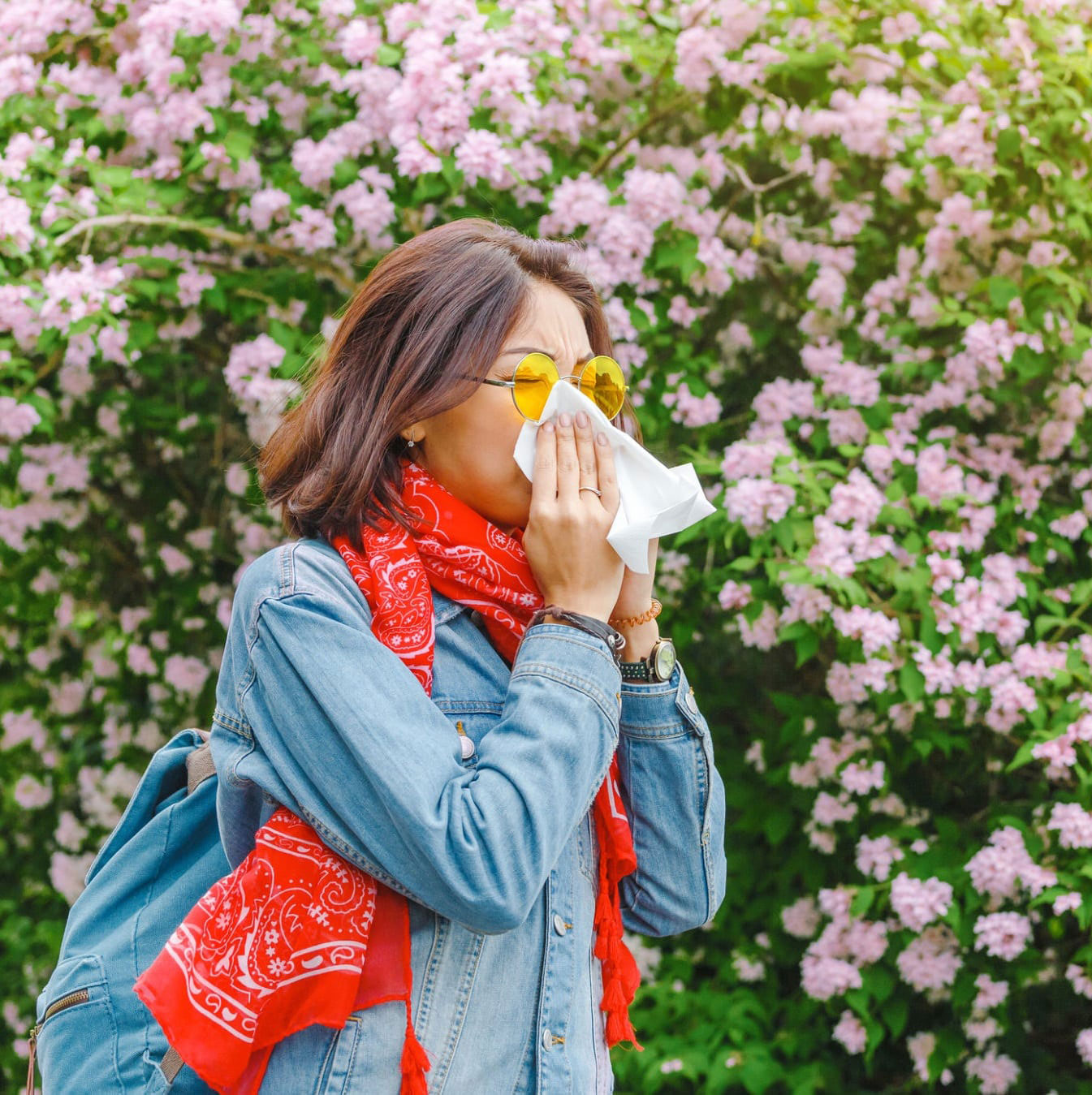Can Allergies Cause Dizziness?

June 03, 2020
Have you ever felt faint, lightheaded or unsteady on your feet when you were experiencing an allergic reaction? It doesn’t happen often, but there are a number of reasons why having allergies may make you feel dizzy.
Fortunately, it’s possible to treat dizziness caused by allergic reactions, which should help you feel steady and stable once again.
“Dizziness is a rare but possible side effect of allergies, and once you identify the cause, it’s possible to treat it and feel like your usual self,” says Mohammad Younus, M.D., an allergy and immunology specialist at Hackensack Meridian Health.
When you’re having an allergic reaction, these factors may cause dizziness:
An inner ear problem
Your inner ear helps you maintain your sense of balance. When problems occur within your ears, you may experience dizziness.
When you have allergies, nasal congestion may cause swelling within your ears, as well as your nose. The swelling within your ears may prevent your eustachian tubes – structures within your ears which help to regulate the pressure within your ears – from functioning properly. When they’re unable to balance the pressure within your ears as needed, it may lead to increased inner-ear pressure, which may cause dizziness.
Only some people who have allergies experience this problem: A study published in the Journal of the National Medical Association found that about 13 percent of people with nasal allergy symptoms experience dizziness due to inner ear problems.
“Treatment of allergy induced dizziness means treating the underlying cause. If an allergy is cause of dizziness, then avoiding the allergen is the most effective way to treat the allergy symptoms, says Dr. Younus. “To determine the underlying cause of dizziness allergy skin test might be helpful.”
Prescription or over-the-counter antihistamines, Nasal sprays, decongestives may help to make the dizziness fade when an inner-ear problem is to blame. In fact, doctors sometimes prescribe antihistamines to patients who have dizziness or vertigo that isn’t caused by allergies, because it’s an effective treatment. Because antihistamines are also used to treat allergy symptoms, the medication may help to alleviate your stuffy or runny nose, along with your dizziness.
“Antihistamines can help to restore function to the tiny eustachian tubes within your ear, because the drug helps to reduce inflammation within the ears, alleviating the dizziness,” says Dr. Younus.
A side effect from allergy medication
Many people reach for over-the-counter antihistamine pills to treat allergies. Dizziness may be a possible side effect, depending on the type of antihistamine that you take.
The oldest antihistamines on the market – which tend to cause drowsiness as a side effect – are more likely to cause other side effects, including dizziness, in some people.
If this happens, your doctor may recommend that you switch to newer antihistamines, which don’t tend to cause side effects like dizziness or drowsiness. Talk to your doctor about which medication may be right for you.
A symptom of anaphylactic shock
Dizziness is one possible symptom that may accompany a severe allergic reaction, known as anaphylactic shock. Food allergies, medication allergies and allergic reactions to insect stings are commonly linked to anaphylactic shock, which may be life-threatening. You may experience:
- swelling in your throat or tongue
- trouble breathing
- hives or itchy skin
- feeling nauseous or faint
- dizziness
This can be a life-threatening condition and you need to be seen by a doctor right away. If you think you are having a severe allergic reaction, go to your nearest emergency department or call 9-1-1.
Next Steps & Resources:
- Meet our sources: Mohammad Younus, M.D.
- To make an appointment with a health care provider near you, call 800-822-8905 or visit our website.
The material provided through HealthU is intended to be used as general information only and should not replace the advice of your physician. Always consult your physician for individual care.
Find a doctor near me
Clinical Contributors
The Difference Between COVID-19 and Allergies

COVID-19 vs. Allergies: Learn key differences in symptoms from Drs. Younus and DeCotiis. Get expert advice and schedule an appointment today.
Hospital Procedure Postponed? 5 Signs It’s Time To Get Care Now
Health care needs are too important to put on hold because of COVID-19. Here are some signs that it’s time to get back to the hospital to get care now.
Find a doctor near me

Have Allergies? 6 Signs You Should See a Doctor
Severe allergies? Dr. Halari offers relief. Learn 6 signs you need a doctor & find solutions for better allergy management. Call 800-822-8905.

Reducing Allergy Symptoms
If you suffer from seasonal allergies, being outside can trigger sneezing, itchy eyes and hives.

8 Possible Causes (and Treatments) for Your Dizziness
Research shows that dizziness, vertigo and balance problems affect about 15 percent of U.S. adults each year.

Can Hay Fever Affect Your Brain?
Hay fever impact on brain function explored. Learn how allergies may affect memory from Dr. Roche. Read more.

